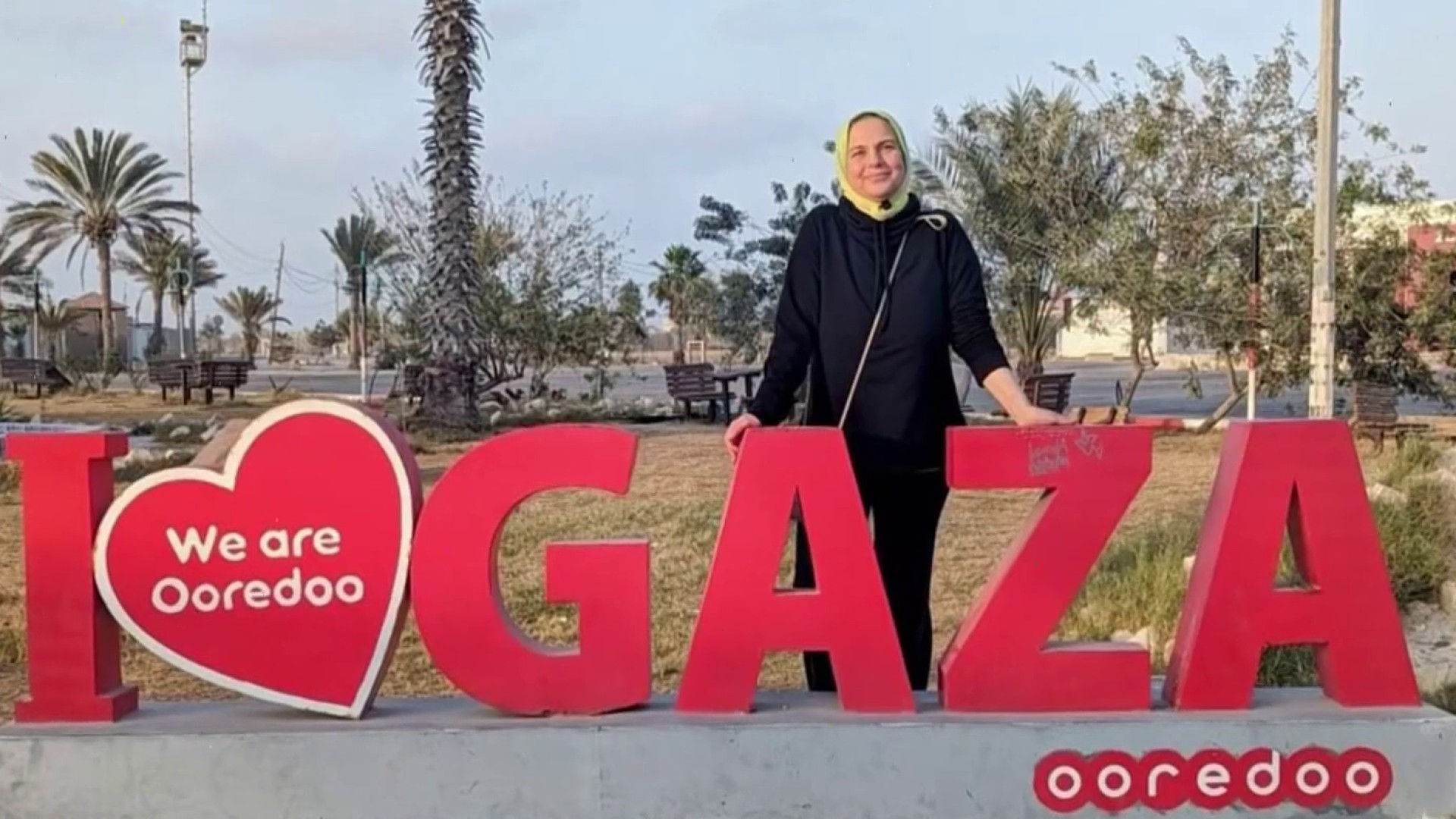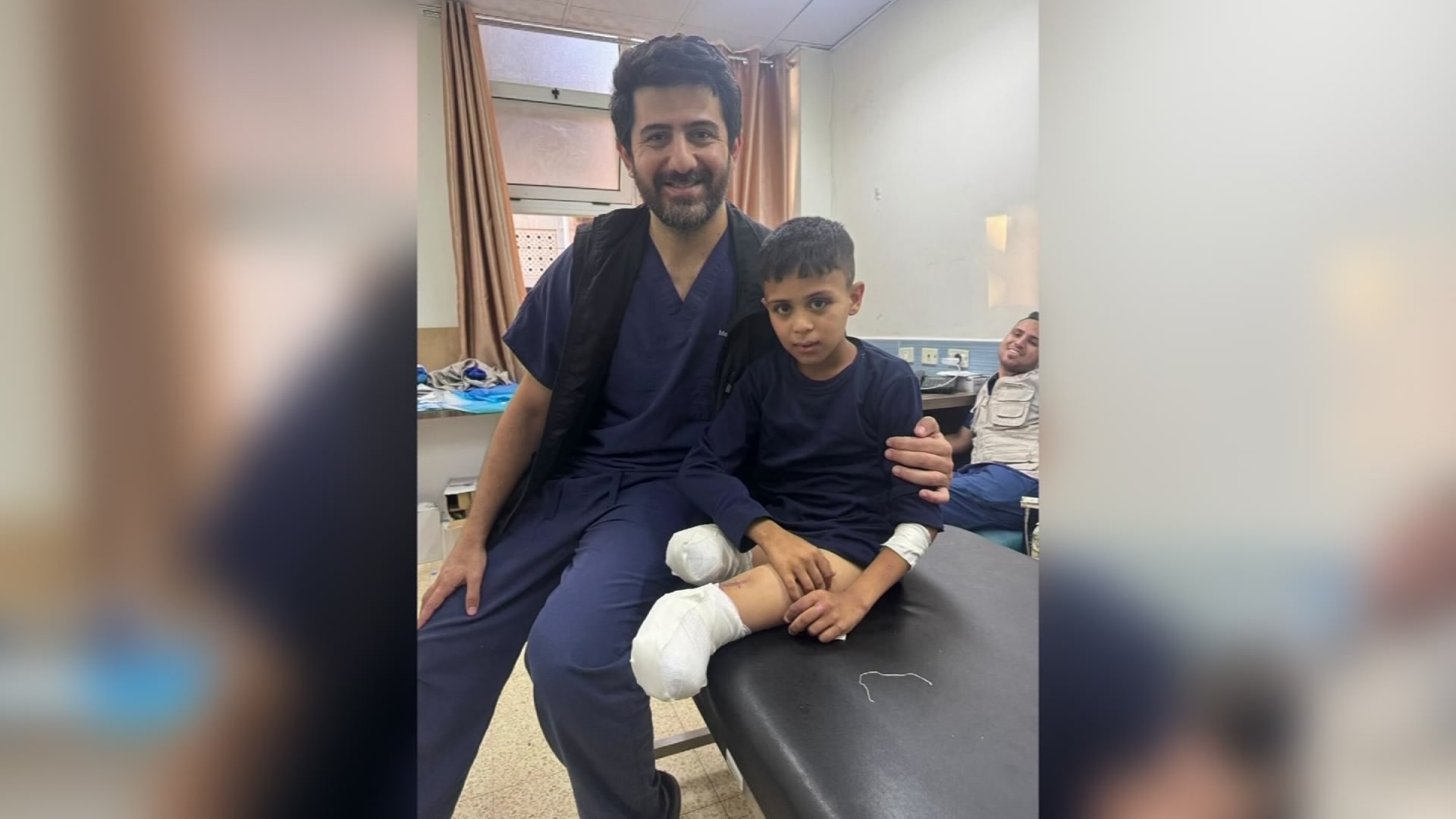A San Carlos doctor is back home in the Bay Area after spending around a month in Gaza — a return delayed by about two weeks after the Rafah border was closed. Jocelyn Moran reports.
A San Carlos doctor is back home in the Bay Area after spending around a month in Gaza — a return delayed by about two weeks after the Rafah border was closed.
Dr. Haleh Sheikholeslami just returned this weekend. She originally left at the beginning of May to go help people. She didn’t think the border would close, meaning that she and others couldn’t leave. At the same time, that meant medicine needed for her patients couldn't come in.
“I felt like I couldn’t sit and watch,” Sheikholeslami said. “I had to contribute in some way.”
When she arrived in Gaza back at the start of May, Sheikholeslami took of a photo in front of a sign — a sign which is now gone.
As a family physician, Sheikholeslami said she worked in an outpatient clinic in southern Gaza.
“The medications I could give in the beginning were very limited in terms of antibiotics, in terms of antipyretics,” she said.
After Israel seized the Rafah closing, it became even more difficult because medicine couldn’t come in.
“Toward the end there was not much I could offer them,” Sheikholeslami said.
She was seeing 30 to 40 patients a day at the beginning. But after people heard of the border closing, that number dropped as they packed up and left.
Get a weekly recap of the latest San Francisco Bay Area housing news. Sign up for NBC Bay Area’s Housing Deconstructed newsletter.
“There is no safe area in Gaza, there is just safer,” Sheikholeslami said. “And many of these people have already moved multiple times. The most I heard was 10 times. Being displaced 10 times.”
Sheikholeslami was supposed to return in the middle of May, but she was among the healthcare workers who couldn’t leave Gaza after the border closed.
NBC Bay Area spoke with her brother at the time, who was worried and had limited communication with her. Meanwhile, Sheikholeslami continued to help patients in Gaza. What many are seeing in videos and photos online, she was seeing in real life.
“What you see is exactly what is real,” Sheikholeslami said. “When you see people suffering malnutrition, you see people desperately trying to leave. This is all real.”
Sheikholeslami’s family — including her brother — greeted her when she got back on Saturday. But even now, she’s also been paying attention to what’s happening overseas.
Dozens of people were killed in the southern Gaza city of Rafah late Sunday by an Israeli airstrike on an area where displaced civilians were sheltering in tents. Israeli Prime Minister Benjamin Netanyaho has called the strike a “tragic incident.”
“When I was in Gaza, it felt like, ‘I’m here, I can do a little bit of work.’ But being away, it’s harder,” Sheikholeslami said. “Because then you’re seeing those images where it’s like, ‘oh my gosh.’ I just wish all human beings could have all the basic privileges of having security, and safety, water — clean water.”



